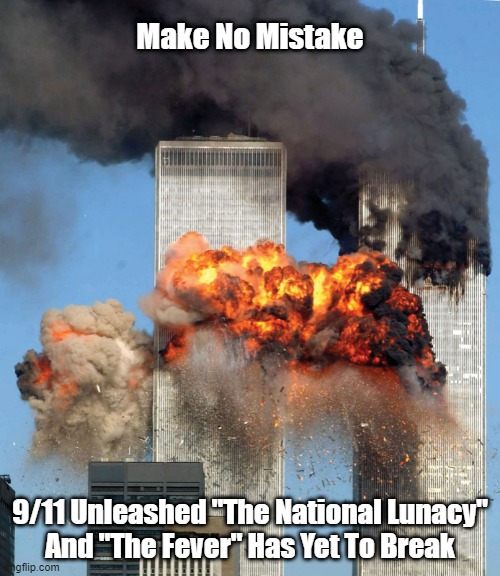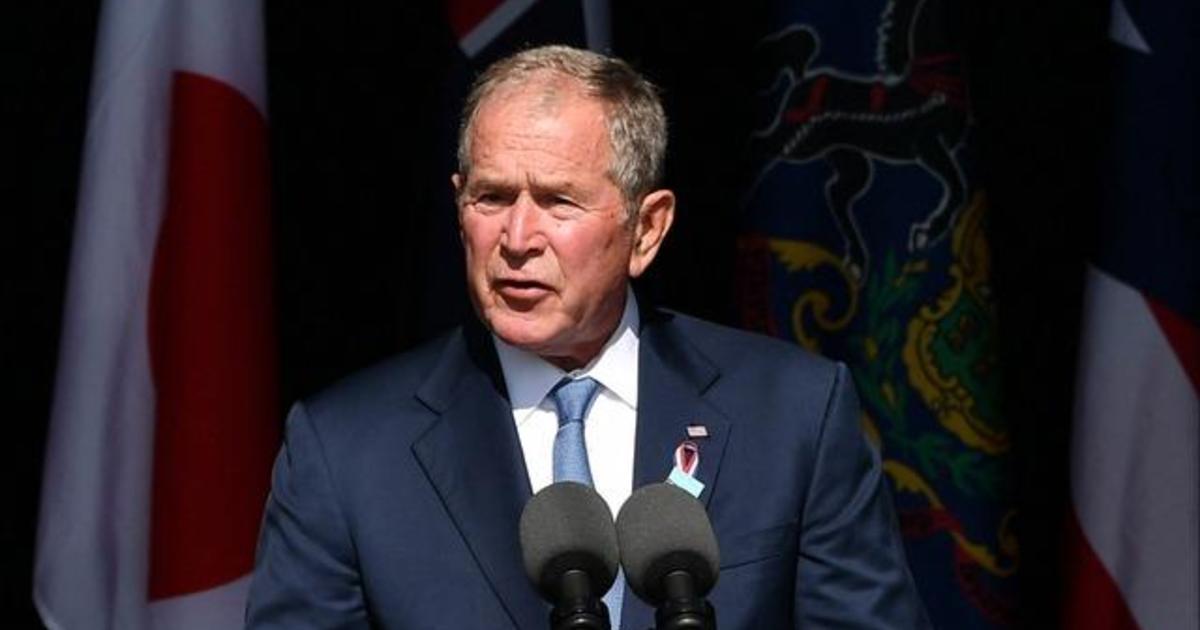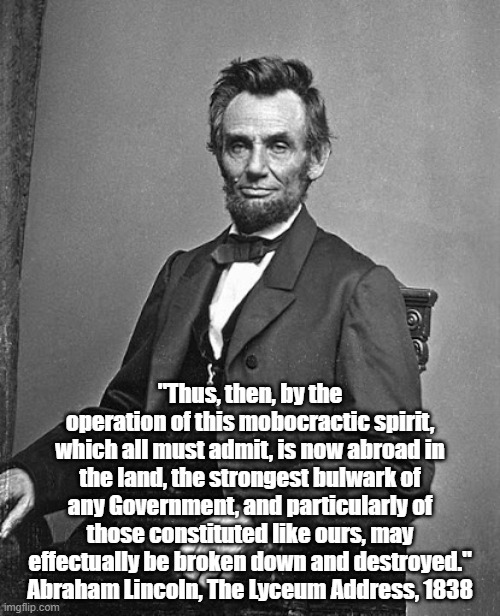"Top law enforcement officials - Merrick Garland and head of Homeland Security - say the biggest domestic terror threat comes from white supremacists," New York Times
Former President Bush likens U.S. extremists to foreign terrorists
- Violent extremists in the U.S. and abroad are “children of the same foul spirit,” former President George W. Bush said in his speech commemorating the 20th anniversary of the 9/11 terror attacks.
- “There’s little cultural overlap between violent extremists abroad and violent extremists at home,” he continued.
- The former president said domestic and foreign extremists share a “disdain for pluralism,” a “disregard for human life,” and a determination to defile national symbols.
- Former US President George W. Bush speaks during a 9/11 commemoration at the Flight 93 National Memorial in Shanksville, Pennsylvania on September 11, 2021. - America marked the 20th anniversary of 9/11 Saturday with solemn ceremonies given added poignancy by the recent chaotic withdrawal of troops from Afghanistan and return to power of the Taliban.
- MANDEL NGAN | AFP | Getty Images
Violent extremists in the United States and abroad are “children of the same foul spirit,” former President George W. Bush said in his speech commemorating the 20th anniversary of the September 11 terror attacks.
The former president gave a speech in Shanksville, Pennsylvania, where he recounted the heroism of the passengers and crew of Flight 93, which crashed into a field after its passengers and crew fought the hijackers to prevent another attack.
In the speech, Bush likened domestic extremists to foreign terrorists who attacked the U.S. 20 years ago.
“We have seen growing evidence that the dangers to our country can come not only across borders, but from violence that gathers within,” Bush said.
“There’s little cultural overlap between violent extremists abroad and violent extremists at home,” he continued.
The former president said domestic and foreign extremists share a “disdain for pluralism,” a “disregard for human life,” and a determination to defile national symbols, appearing to reference the January 6 Capitol riot.
The former president had previously said that the Capitol riot left him “sick to his stomach” and said that he was “still disturbed” for weeks following the insurrection.
Of the more than 500 people arrested in connection with the Capitol riot, dozens had links to U.S. extremist groups such as the Oathkeepers, Three Percenters and Proud Boys.
In his speech Saturday, Bush criticized the presence of culture wars in U.S. politics as well.
“When it comes to the unity of America, those days seem distant from our own,” Bush said. “Malign force seems at work in our common life, that turns every disagreement into an argument, and every argument into a clash of cultures.”
The son of former President George H.W. Bush said our politics has become a “naked appeal to anger, fear and resentment,” and said he is worried about our future.
The president said he recalls “millions” of Americans coming together on a day of “trial and grief” following the 9/11 terror attacks.
“At a time when nativism could have stirred hatred and violence against people perceived as outsiders, I saw Americans reaffirm their welcome to immigrants and refugees,” Bush said. “That is the nation I know.”
In the speech, Bush also acknowledged critics of the war on terror that he initiated.
“The military measures taken over the last 20 years to pursue dangers at their source have led to debate, but one thing is certain, we owe an assurance to all who have fought our nation’s recent battles,” Bush said as he praised members of the military.
“The cause you pursued at the call of duty is the noblest America has to offer. You have shielded your fellow citizens from danger,” Bush said. “You have defended the beliefs of your country, and advanced the rights of the downtrodden ... we’re grateful.”
Bush has not only faced criticism for foreign policy following the 9/11 attacks, but for domestic policy that critics say has led to a slew of policies over the years allowing the surveillance of innocent Americans as well.
Human rights groups like The American Civil Liberties Union have heavily criticized laws passed in the months and years after the attacks like the Patriot Act, which allowed the government to monitor phone and email communications, bank records and internet activity.
Several federal departments like the Department of Homeland Security and U.S. Customs and Border Control were spawned from a sense of urgency sparked by the attacks.
An increase in the prosecution of journalists also followed the attacks. In 2013, Edward Snowden, a former contractor for the National Security Agency, leaked classified information to Wikileaks that shocked the nation, exposing widespread government surveillance of innocent Americans.
The U.S. government is still pursuing legal action against the founder of Wikileaks, Julian Assange, a move that human rights groups and even the United Nations have condemned.



No comments:
Post a Comment